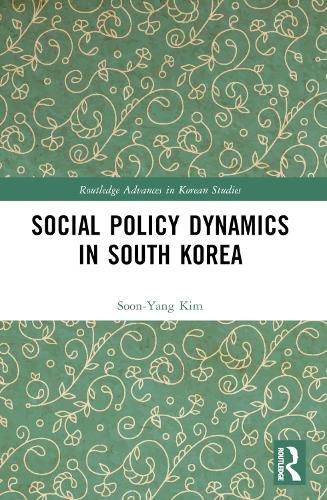Readings Newsletter
Become a Readings Member to make your shopping experience even easier.
Sign in or sign up for free!
You’re not far away from qualifying for FREE standard shipping within Australia
You’ve qualified for FREE standard shipping within Australia
The cart is loading…






Kim offers unique insight into the deeper political dynamics of Korean social policy by analysing the relationship between the broader context of East Asian commonality and the unique circumstances of Korea.
Since the 1980s, South Korea has advanced social policy at a rapid pace with the progress of political democracy and the activation of civil society. Currently, South Korea is equipped with a full range of social policies including public assistance, social insurance, and social services. However, South Korea's road to a remarkable social policy accomplishment was not a smooth one and controversies sizzled over the values, directions, and methods of social policy. Kim delves into the political dynamics of Korea's social policy, spanning from the traditional kingdom era to contemporary South Korea. In doing so he examines the influences of Confucianism, developmental welfareism, and the responses to the Asian economic crisis in shaping these policies.
An important resource not only for scholars and students of Korean society and social policy, but also for scholars of social policy more broadly, especially those with a focus on other East Asian countries.
$9.00 standard shipping within Australia
FREE standard shipping within Australia for orders over $100.00
Express & International shipping calculated at checkout
Kim offers unique insight into the deeper political dynamics of Korean social policy by analysing the relationship between the broader context of East Asian commonality and the unique circumstances of Korea.
Since the 1980s, South Korea has advanced social policy at a rapid pace with the progress of political democracy and the activation of civil society. Currently, South Korea is equipped with a full range of social policies including public assistance, social insurance, and social services. However, South Korea's road to a remarkable social policy accomplishment was not a smooth one and controversies sizzled over the values, directions, and methods of social policy. Kim delves into the political dynamics of Korea's social policy, spanning from the traditional kingdom era to contemporary South Korea. In doing so he examines the influences of Confucianism, developmental welfareism, and the responses to the Asian economic crisis in shaping these policies.
An important resource not only for scholars and students of Korean society and social policy, but also for scholars of social policy more broadly, especially those with a focus on other East Asian countries.